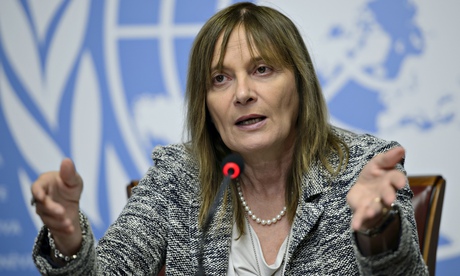
Patients in the three west African countries devastated by Ebola may be able to get transfusions of blood from survivors within weeks, the World Health Organisation says.
Unprecedented efforts are underway in Sierra Leone, Liberia and Guinea to make experimental vaccines and treatments available in a bid to slow the escalating number of infections and save lives.
Large-scale vaccine trials, which it is hoped might protect some of those most at risk including health workers and burial teams are expected to start in January.
Blood from survivors such as the British nurse Will Pooley contains antibodies that could help the immune systems of people with Ebola to fight the virus.
Dr Marie Paule Kieny, an assistant director-general at the WHO, said a lot of work was now going on to make it possible to use blood in the epidemic-hit countries where health systems have collapsed.
“It needs to take into consideration the safety of the donor as well as the recipient,” she said at a briefing in Geneva. “Great care must be taken to ensure blood from the transfusions is devoid of infectious agents for Ebola as well as HIV, hepatitis and other dangerous pathogens.”
Capacity to take and test and use the blood of survivors was being set up in all three countries, but would be fastest in Liberia, she said, where she hoped it would be established “in the coming weeks”.
Experimental vaccines will be introduced in January, she said, although in the context of large-scale clinical trials. “I’m not saying there will be mass population immunisation starting in January 2015. This is not the case,” she said. “We’re talking about tens of thousands of doses, not millions, in January.”
Those trials will be in people at high risk, probably including “healthcare workers but also burial teams or family members or contacts of known Ebola cases. There has been no decision yet taken. It is quite likely the intervention will take place in each of the three countries, so there may be a different approach in each country.”
There are three leading candidate vaccines. One from GlaxoSmithKline and a similar vaccine from Johnson and Johnson are already in human safety trials, which are important not just to establish that there are no serious side-effects but also to work out the optimal dose.
GSK is already manufacturing 10,000 doses of its vaccine, which is unprecedented ahead of safety data – as is the sharing of data which is now taking place between commercial rivals. A third vaccine, from Canada, is moving into human trials and 800 vials have been shipped to Geneva for use in Africa as soon as there is data on its safety and immunogenicity – the antibody response it evokes, which is an indicator that it could be effective against the virus.
“There haven’t been any delays. We couldn’t go any faster without really doing things dangerously,” said Dr Charles Link, CEO and chief scientific officer of NewLink Genetics, of Ames, Iowa, which has the manufacturing licence from the Canadian government, speaking in the Canadian Press.
“I don’t think humanity has ever tried to do something this complex, to be quite honest,” said Link.
The 10,000 doses of GSK’s vaccine will not be enough to immunise all frontline health workers and burial teams – that would require somewhere between 70,000 and 100,000 doses, but it is likely that the companies will try to ramp up production if the safety and immunogenicity data from trials outside of west Africa look good.
Experts will be hoping that the antibody response in people who have been vaccinated is high enough. If not, boosters could be required, which will be highly problematic in the three countries. It would be a huge logistical challenge to recall people for a second injection in a state where much of the infrastructure has broken down and health records and names and addresses of patients were not routinely recorded even before Ebola hit.
Meanwhile, a senior Red Cross official has said he is confident the epidemic could be contained within four to six months by the methods that have closed down Ebola outbreaks in the past.
Elhadj As Sy, the secretary-general of the International Federation of Red Cross and Red Crescent Societies, told reporters in Beijing on Wednesday that the outbreak could be contained if there was “good isolation, good treatment of the cases which are confirmed, good dignified and safe burials of deceased people”.
